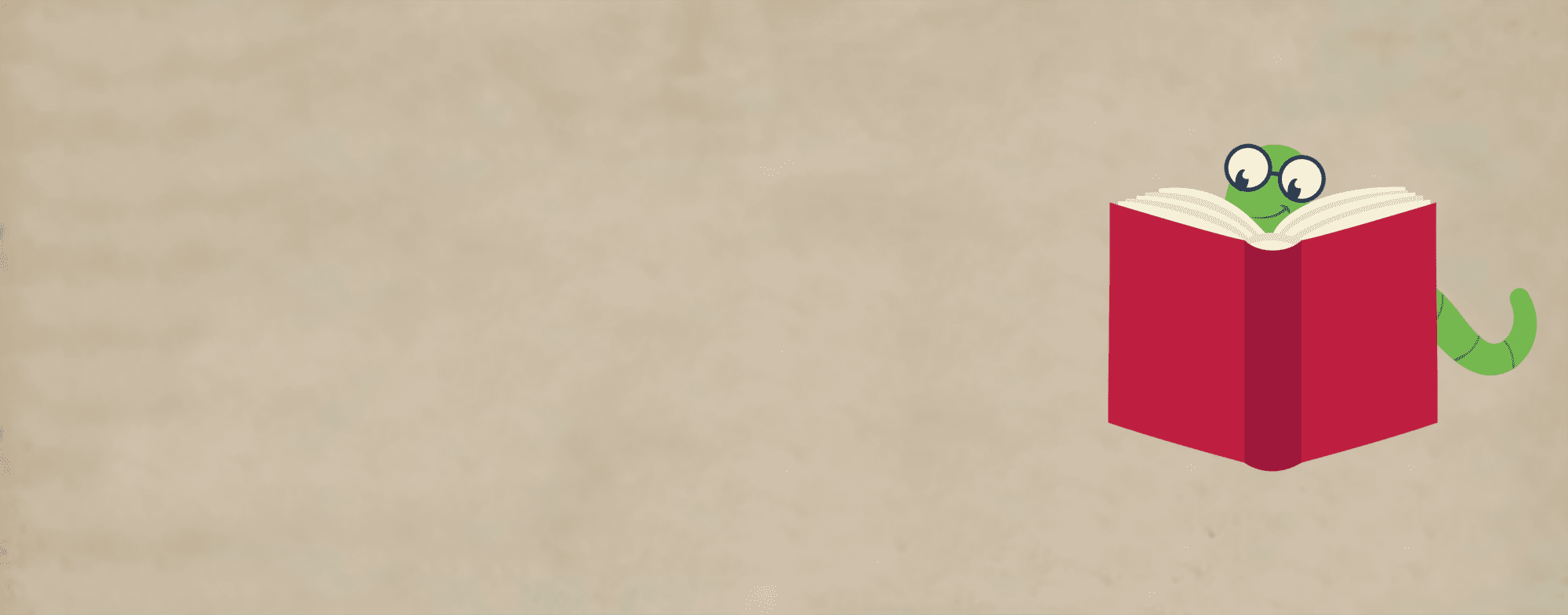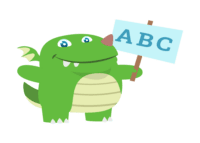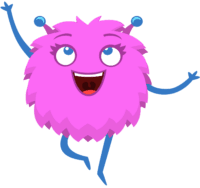
Online Elementary School Program
Virtual Preparatory Academy of Missouri
Online Elementary School: Grades K-5
The online elementary school program at Virtual Preparatory Academy of Missouri is tuition-free. Our Missouri-approved online elementary school program is designed with your child’s success in mind. We offer online public-school education for first, second, third, fourth and fifth grade in our online elementary school curriculum.
Supported by state-licensed teachers, Virtual Preparatory Academy of Missouri’s online elementary school program uses interactive course materials and videos. We strive to provide a relevant, engaging, and challenging curriculum that is developmentally appropriate, meets their individual needs, and prepares students for middle school.
The elementary school years prepare students by teaching them vital subjects, such as reading, science, and mathematics. During these formative years, they also develop critical thinking skills, learn to solve problems, understand abstract ideas, and have time-management skills that will help lay the foundation for future success.
* Course offerings are subject to change and may vary based on school staffing.




Curriculum, K-5
Kindergarten Language Arts
The Kindergarten course lays the groundwork for reading and writing. It aims to combine excellent decoding instruction with frequent reading-aloud to ensure that students can translate letters into words and make sense of the words they are decoding.
Skills lessons address decoding skills, focusing on sounds or phonemes as the primary organizing principle, rather than letters. Phonics instruction begins with sounds and then attaches those sounds to spellings. Students build awareness of environmental noises, sounds within words, and words within sentences. As students gain phonological awareness, they progress to blending and segmenting sounds within words. Students are introduced to reading using decodable readers that are engaging and fun.
Students learn the mechanics of writing. Starting with pre writing basics, students learn correct grip and the writing strokes used to create letters. Students learn how to “spell the sounds,” writing the letters that represent the sounds that they have learned.
The course includes daily read-alouds that help students build the background knowledge and vocabulary critical to listening and reading comprehension. Students learn by listening to nursery rhymes, fables, classic tales, and nonfiction texts.
While teaching skills in reading, writing, listening, and speaking, the course also builds students’ knowledge and vocabulary in literature, history, geography, and science.
Kindergarten Math
In this problem-based curriculum, students will build on their math skills through exploration with interactives and virtual manipulatives.
Students will explore different ways to represent the compositions and decompositions of numbers within 10, including working with 10-frames. Then they will count and represent collections of objects and images within 20. Next, students will explore solid shapes while reinforcing their knowledge of counting, number writing and comparison, and flat shapes.
In the final unit of this course, students will prepare for Grade 1 by revisiting major work and fluency goals of the grade, applying their learning from the year.
Kindergarten Science
The Kindergarten science course builds students’ knowledge about core ideas in life, physical, and earth sciences, as well as engineering design. Students will explore pushes and pulls, the needs of plants and animals, changing environments, and weather patterns.
Students will develop and use scientific practices that give them firsthand experience in scientific inquiry, engineering, and technology. Throughout the course, scientific learning is connected to concepts across various disciplines, such as mathematics and literacy.
Kindergarten Social Studies
Kindergarten Social Studies includes history, geography, economics, and civics lessons plus additional resources for teachers and students.
This is a comprehensive course, integrating topics in civics and the arts. The course helps students build knowledge of the diverse civilizations, cultures, and concepts.
1st Grade Language Arts
The course continues to build the foundation for reading and writing. It includes frequent read-alouds that help students build the background knowledge and vocabulary critical to listening and reading comprehension. Students learn by listening to fables and stories, as well as nonfiction texts that include topics related to science and history.
Skills instruction starts with a review of sounds and spellings. Students are introduced to tricky spellings (spellings that look the same but are pronounced differently) and tricky words (words that cannot be sounded out using the letter-sound correspondences taught so far). Decodable readers are provided for students to practice their emerging reading skills. Students learn to read and write words with separated digraphs (such as a and e in cake). They begin to work with weekly spelling words.
Grammar lessons address parts of speech, including nouns (common and proper), past-tense verb forms, and adjectives. Students progress to work with nouns and verbs in phrases and to use adjectives for descriptive writing. They begin formal instruction in a writing process with a focus on narrative writing.
1st Grade Math
In this problem-based curriculum, students will build on their math skills through exploration with interactives and virtual manipulatives.
Students will count and group two-digit numbers and compare them using the symbols >, =, and <, while using place value and properties of operations to add within 100. Students will begin a study of measurement, measuring length and counting up to 120 length units. They solve addition and subtraction story problems with unknowns in all positions. They will continue to learn basic geometry skills as they reason with shapes and their attributes, partition shapes into equal pieces, and tell time to the hour and half hour.
In the final unit of this course, students will prepare for Grade 2 by revisiting major work and fluency goals of the grade, applying their learning from the year.
1st Grade Science
Grade 1 science continues to build students’ knowledge about core ideas in life, physical, and earth sciences, as well as engineering design. Students will explore the sun, moon, and stars; light and sound; plant and animal survival; and simple machines.
Students will develop and use scientific practices that give them firsthand experience in scientific inquiry, engineering, and technology. Throughout the course, scientific learning is connected to concepts across various disciplines, such as mathematics and literacy.
1st Grade Social Studies
First Grade Social Studies includes history, geography, economics, and civics lessons plus additional resources for teachers and students.
This is a comprehensive course, integrating topics in civics and the arts. The course helps students build knowledge of the diverse civilizations, cultures, and concepts.
2nd Grade Language Arts
The course includes frequent read-alouds that help students build the background knowledge and vocabulary critical to listening and reading comprehension. Students learn by listening to fairy tales, tall tales, myths, and nonfiction texts that include topics related to science and history.
Skills instruction continues as students are introduced to spelling alternatives for vowel sounds, as well as various tricky spellings (spellings that look the same but are pronounced differently, such as o in hop or open). Weekly spelling lessons are a regular part of student work.
Students practice using a writing process with a focus on writing narratives and opinions. Grammar instruction focuses on capitalization, quotation marks, ending punctuation, and common and proper nouns. Students are also introduced to antonyms and synonyms.
Decodable readers for every skills unit include both fiction and nonfiction selections.
2nd Grade Math
In this problem-based curriculum, students will build on their math skills through exploration with interactives and virtual manipulatives.
Students represent and solve story problems within 20 using picture and bar graphs. Students build toward fluency with addition and subtraction as they add and subtract within 100 using strategies based on place value, properties of operations, and the relationship between addition and subtraction. They then use what they know to solve story problems.
Students measure and estimate lengths in standard units and solve measurement story problems within 100 and then learn about the structure of a number line and use it to represent numbers within 100. They also relate addition and subtraction to length and represent the operations on the number line.
2nd Grade Science
Grade 2 science continues to build students’ knowledge about core ideas in life, physical, and earth sciences, as well as engineering design. Students will explore the properties of matter, the needs of plants and animals, land and water features, and electricity and magnetism.
Students will develop and use scientific practices that give them firsthand experience in scientific inquiry, engineering, and technology. Throughout the course, scientific learning is connected to concepts across various disciplines, such as mathematics and literacy.
2nd Grade Social Studies
Second Grade Social Studies includes history, geography, economics, and civics lessons plus additional resources for teachers and students.
This is a comprehensive course, integrating topics in civics and the arts. The course helps students build knowledge of the diverse civilizations, cultures, and concepts.
3rd Grade Language Arts
The course includes frequent read-alouds that help students build the background knowledge and vocabulary critical to listening and reading comprehension. Students learn by listening to nonfiction texts that include topics related to science and history. The first unit includes selections from The Wind in the Willows by Kenneth Grahame to reinforce understanding of story elements.
Students practice and build reading skills as they read selections in their readers. Many reading selections are informational texts that address topics related to science and history. Students also read excerpts from some classic tales, plus a variety of stories and myths from diverse groups.
During writing instruction, students use a writing process as they practice expository (cause and effect), narrative (story), and opinion writing.
Morphology lessons address reading and understanding words with common prefixes, suffixes, and Greek and Latin roots. Morphology instruction also addresses the meaning of various prefixes, suffixes, and roots.
Grammar lessons address various speech and language-usage conventions (such as capitalization and punctuation). These specific grammar skills are then reinforced and applied in all writing exercises.
Spelling lessons include weekly word lists that focus on content words and words with morphological patterns taught in each unit. Spelling exercises provide students with opportunities to practice applying knowledge of letter–sound correspondences learned in earlier grades.
3rd Grade Math
In this problem-based curriculum, students will build on their math skills through exploration with interactives and virtual manipulatives.
Students will represent and solve multiplication problems using picture and bar graphs. They will learn about the relationship between multiplication and division, place value, and the properties of operations to multiply and divide whole numbers within 100. They also represent and solve two-step word problems using all four operations.
They will learn about area concepts and relate area to multiplication and to addition as well as use place value understanding to round whole numbers and add and subtract within 1,000. They represent and solve two-step word problems using addition, subtraction, and multiplication and assess the reasonableness of answers.
3rd Grade Science
Grade 3 science builds on prior understanding of scientific topics to support increasingly sophisticated learning. Students will investigate forces; life cycles, traits, and variations; habitats and change; and weather and climate.
Students will develop and use scientific practices that give them firsthand experience in scientific inquiry, engineering, and technology. Throughout the course, scientific learning is connected to concepts across various disciplines, such as mathematics and literacy.
3rd Grade Social Studies
Grade 3 social studies is a comprehensive program that is meant to prepare students to actively participate in a democratic society. Students will learn about history and geography as they study world rivers, ancient Rome, the Vikings, the earliest Americans, and the thirteen colonies.
Projects that accompany each unit expand upon the historical and geographical learning and allow students to build an understanding of local history and geography, civics, and economics.
4th Grade Language Arts
Students read from a variety of texts, including excerpts from Brown Girl Dreaming by Jacqueline Woodson, legends of King Arthur and his knights, poetry, and informational texts about science and history topics.
Students use a writing process to develop several writings, including a memoir, a persuasive paragraph, a short story, a variety of poems, and shorter writing projects.
Morphology lessons address reading and understanding words with common prefixes, suffixes, and Greek and Latin roots. Morphology instruction also addresses the meaning of various prefixes, suffixes, and roots.
Grammar lessons address various speech and language-usage conventions (such as capitalization and punctuation). These specific grammar skills are then reinforced and applied in all writing exercises.
Spelling lessons include weekly word lists that focus on content words and words with morphological patterns taught in each unit. The spelling exercises provide students with opportunities to practice applying knowledge of letter–sound correspondences learned in earlier grades.
4th Grade Math
In this problem-based curriculum, students will build on their math skills through exploration with interactives and virtual manipulatives.
Students apply understanding of multiplication and area to work with factors and multiples. Students generate and reason about equivalent fractions and compare and order fractions and learn to add and subtract fractions with like denominators, and to add and subtract tenths and hundredths.
Finally, students will read, write, and compare numbers in decimal notation. They also extend place value understanding for multi-digit whole numbers and add and subtract within 1,000,000.
4th Grade Science
Grade 4 science builds on prior understanding of scientific topics to support increasingly sophisticated learning. Students will investigate energy transfer and transformation; waves; structures and functions of living things; processes that shape the earth; and using natural resources for energy.
Students will develop and use scientific practices that give them firsthand experience in scientific inquiry, engineering, and technology. Students will also have the opportunity to use problem-based learning to develop and present solutions based on learning, and, ideally, interact with their community. Throughout the course, scientific learning is connected to concepts across various disciplines, such as mathematics and literacy.
4th Grade Social Studies
Grade 4 social studies is a comprehensive program that is meant to prepare students to actively participate in a democratic society. Students continue to build upon their knowledge of geography as they study world mountains. The age of exploration is covered and the historical focus shifts to American history topics such as the American Revolution, the Constitution, and early Presidents.
Projects that accompany each unit expand upon the historical and geographical learning and allow students to build an understanding of local history and geography, civics, and economics.
5th Grade Language Arts
Students study contemporary and classic fiction, as well as informational texts. Readings include an adaptation of Shakespeare’s A Midsummer Night’s Dream, a novel that students select, poetry, and a variety of informational texts related to historical topics.
Writing instruction centers on a comprehensive writing process and focuses on writing increasingly complex sentences, composing coherent paragraphs, and writing for a variety of purposes. Students develop a variety of writings, including a friendly letter, a variety of original poems, and a persuasive essay.
Morphology lessons address reading and understanding words with common prefixes, suffixes, and Greek and Latin roots. Morphology instruction also addresses the meaning of various prefixes, suffixes, and roots.
Grammar lessons address various speech and language-usage conventions (such as capitalization and punctuation). These specific grammar skills are then reinforced and applied in all writing exercises.
Spelling lessons include weekly word lists that focus on content words and words with morphological patterns taught in each unit. The spelling exercises provide students with opportunities to practice applying knowledge of letter–sound correspondences learned in earlier grades.
5th Grade Math
In this problem-based curriculum, students will build on their math skills through exploration. Throughout this course, students will use interactives and virtual manipulatives to explore math concepts.
Students will use their understanding of place value to round, compare, order, add, subtract, multiply, and divide decimals. They will then solve multi-step problems involving measurement conversions, line plots, and fraction operations, including addition and subtraction of fractions with unlike denominators.
Next, students plot coordinate pairs on a coordinate grid and classify triangles and quadrilaterals based on properties of side length and angle measure. They generate, identify, and graph relationships between corresponding terms in two numeric patterns, given two rules, and represent and interpret real world and mathematical problems on a coordinate grid.
In the final unit of this course, students will prepare for middle school by revisiting major work and fluency goals of the grade, applying their learning from the year.
5th Grade Science
Grade 5 science builds on prior understanding of scientific topics to support increasingly sophisticated learning. Students will investigate matter; energy and matter in ecosystems; modeling Earth’s systems; protecting Earth’s resources; and astronomy.
Students will develop and use scientific practices that give them firsthand experience in scientific inquiry, engineering, and technology. Students will also have the opportunity to use problem-based learning to develop and present solutions based on learning, and, ideally, interact with their community. Throughout the course, scientific learning is connected to concepts across various disciplines, such as mathematics and literacy.
5th Grade Social Studies
Grade 5 social studies is a comprehensive program that is meant to prepare students to actively participate in a democratic society. Students continue to build upon their knowledge of geography as they focus on the physical features and climate of the United States. They learn about the ancient civilizations that paved the way for modern societies and systems. American history topics focus on westward expansion, before and after the Civil War.
Projects that accompany each unit expand upon the historical and geographical learning and allow students to build an understanding of local history and geography, civics, and economics.
- Health
- Physical Education
- Art
- Keyboarding for Younger Students
- 2D Media Artwork
- 3D Graphics and Video
- Foundations in Reading
- Introduction to Computers
- Scratch Coding
Electives vary by grade and offering
Request Information
Fill out the form to receive more information about our school